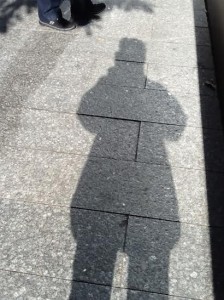Forgotten People — Never to Be Forgotten (A Series): Lesson 16 – The Role of Charity
on March 2nd, 2015 at 11:23 amI learned over the years that a little charitable giving could accomplish an enormous amount. Much of this learning was provided thanks to the presence of a most unusual private foundation in New York City with whom I became an almoner. Each year the Fund provided its Almoners with an amount of money to make available to those in need of emergency funds. The three stipulations were that those receiving money had to be residents of New York City, grants could not exceed $750 and the donating Fund’s name must be kept anonymous.
Photo: c malamud
As an Almoner for nearly 20 years I granted awards amounting in total to nearly $90,000. To give some examples of how just a little award can significantly enhance a person’s quality of life and ability to achieve goals:
When Tom joined Fountain House, he and his cat moved into SRO housing. The cat needed to be neutered in order for Tom to keep him in the apartment and so it was decided that a grant of $56 paid directly to the vet would be in Tom’s best interests.
David has been a very active member who completed several TE placements. However he suffered a setback and had to be hospitalized. After his discharge he was unable to support himself financially and so he needed to be employed as quickly as possible. He was granted a mere $50 to purchase clothing for the TE position he obtained.
Fabio, after becoming a United States citizen, received a much needed $100 to obtain a US Passport in order to return to his native Columbia to marry his fiancée and then bring her back to America. .
Reginald lost all of his identity documents. He was a permanent resident and most anxious to obtain duplicates in order to go to work, obtain needed benefits and secure housing. A small donation of $88.25, allowed Reggie to receive a copy of his birth certificate from Jamaica with which he was able to get the remaining documents and subsequently start a TE placement.
Bert a man in his mid-60’s had been an in-patient at Manhattan Psychiatric Center for many years. Upon meeting him, one is struck by his dignified bearing, wry smile and soft-spoken manner. He was a regular attendee at the Fountain House sponsored Tuesday evening socials held in the hospital’s snack bar. One such Tuesday, we learned that his brother had just died, and that the funeral was to be held that following Monday. Bert felt he was unable to attend because he did not have the appropriate clothing and the hospital could only provide a shirt and tie.
One of the Fountain House members asked and got his measurements including shoe size, and by the end of the week had, through the Fund’s help, purchased a black suit and matching black shoes. That Saturday, she and another member, on their own, traveled to Ward’s Island in the middle of the East River to deliver the new attire to Bert. On the following Tuesday, the day after the funeral, Bert arrived at the snack bar all dressed up. Smiling from ear to ear he reported on the funeral, expressing the family’s appreciation for his being there, as well as his own gratitude for the opportunity.Within two months of that Tuesday, Bert was discharged from the hospital. He became a member of Fountain House and is “giving back” by attending the Tuesday evening socials to help inspire other patients to plan for their discharge.
For many individuals receiving Medicaid or Medicare benefits, certain events occur for which such benefits are not available:
While Ray was enrolled in graduate school, he supported himself with per diem social service work, supplemented by SSDI and Medicare benefits. When he broke his eyeglasses Medicare was not available because not enough time had elapsed since his last prescription. $440 allowed him to obtain new glasses, complete his semester’s work and go on to receive his degree.
Antoinette needed dental work not covered by Medicaid before she could go back to work. We provided the $400 required for the procedure. Antoinette was able to subsequently obtain employment and was adamant about repaying the advance for the use by others in need.
Educational needs were a third area were a little money helped in a big way:
Gladys needed help to maintain her job and her academic status. A grant of $500 made it possible for her to get needed textbooks for her graduate courses and procure proper attire for her new job.
In order for Randy to succeed at completing a course on Computer Animation at the NYU Center for Advanced Digital Applications, she had to acquire a pair of “Definity” lenses so she received the $340 she needed to purchase them
As usual, this posting is part of a larger body of work pending publication. Any quotation, or reference to it (or others) must be made with the authors’ permission, which may be obtained by contract through the e-mail listed below:
or by contact via the URL below. Readers’ comments and feedback are welcome by the same means, which will be edited and published for further discussion.
